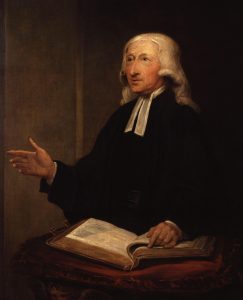 While John Wesley’s life parallels many religious trends today, John Dewey, born in 1859, the same year Darwin published his Origin of Species, continue to be the source of much of today’s moral education and social reform. Wesley, a master of 18th century social media and a prophet wayout ahead of others faced an era in which many bright people walked away from the church. In the midst of skeptical winds of the Enlightenment that had been blowing across Europe especially after Wesley’s death, John Dewey particularly did more to shape educational methodology in the twentieth century.[1] Dewey, influenced by his mother, was born and grew up in an evangelical home and experienced conversion he called a ‘mystic experience.’ In college, he went through a spiritual decline under the influence of a ‘liberal form of theology shaped by German idealism.’ Similar to Process theology that teaches that God and the world are both in a process of constant change and evolution, Dewely who later adopted a naturalistic philosophy offered himself ‘as a quite-spoken evangelist of a redeeming form of humanism and naturalism.’ His acceptance of Social Gospel that redefined salvation as social progress where humans were merely biological organism seeking to control the enviroment through scientific inquiry.’
While John Wesley’s life parallels many religious trends today, John Dewey, born in 1859, the same year Darwin published his Origin of Species, continue to be the source of much of today’s moral education and social reform. Wesley, a master of 18th century social media and a prophet wayout ahead of others faced an era in which many bright people walked away from the church. In the midst of skeptical winds of the Enlightenment that had been blowing across Europe especially after Wesley’s death, John Dewey particularly did more to shape educational methodology in the twentieth century.[1] Dewey, influenced by his mother, was born and grew up in an evangelical home and experienced conversion he called a ‘mystic experience.’ In college, he went through a spiritual decline under the influence of a ‘liberal form of theology shaped by German idealism.’ Similar to Process theology that teaches that God and the world are both in a process of constant change and evolution, Dewely who later adopted a naturalistic philosophy offered himself ‘as a quite-spoken evangelist of a redeeming form of humanism and naturalism.’ His acceptance of Social Gospel that redefined salvation as social progress where humans were merely biological organism seeking to control the enviroment through scientific inquiry.’
Revival delays, moral decays because many have imbibed deeply at the well of Dewey. According to Pearcey, ‘teachers are rigorously instructed not to be directive in any way, but only to coach students in a process of weighing alternatives and making up their own minds. Any value that students choose is deemed acceptable, whether or not it comports with accepted moral standard … each individual has to become an autonomous decision maker, determining his values strictly on his own.’ Philosophical naturalism liberate students from the moral standards they bring in from home and church and acknowledge whatever the individual values. Moral education that inspires most civilisation no longer matter so as not to offend or upset anyone. Professor William Kilpatrick in his book titled Why Johnny Can’t Tell Right from Wrong, explained the danger of drinking from the well of Dewey including moral illiteracy. Today’s generation are drinking from Dewey’s well hence, they cannot tell right and wrong, ‘they are encouraged to develop their own values, with no right or wrong answers.’[2] Gospel and knowledge has become social construction, the goal of salvation and education is to guide people how to construct their own faith, reality, and knowledge.
Revival delays because moral decays. According to Dewey’s naturalistic approach, preachers and teachers are not to tell students that ‘their ideas are right or wrong, either, but merely to encourage them to clarify and articulate their own understandings’ and faith. Based on Dewey’s approach, we continue to keep the institution running, like the teachers, doing the ministry for a job or career. Today, just as students are constructing their own invented spelling and value systems, church members are reconstructing and redefining their own Christianity hence, revival delays because of cheapening the Gospel. When we drink from Dewey’s well, we make truth for ourselves rather than finding the Truth just as Aristotle and Wesley discovered and encountered it. Beliefs and church responsibilities becomes a mere human construction when we drink from Dewey’s well, ‘people will not endure sound doctrine, but after their own lusts, having itching ears – turning their ears from the Truth, and … turned to fables’ (2Tim 4:3-4). The danger of Dewey’s well is that ‘Christians can be infected by secular worldview not only in their beliefs but also in their practices.’ Churches could ‘be biblical in message and yet fail to be biblical in its methods.’[3]
In the face of a great resurgence of interest in Wesley’s teachings and spirituality, embraced by people across denominational spectrum, it is time to keep faith with Wesley’s words, words inspired by the Holy Spirit. Wesley’s words ‘means following biblical principles in the personal and practical spheres of life.’[4] Wesley stressed the preeminence of the Bible over other books and philosophy. Wesley did not limit himself to the translation currently standard in the Church of England (KJV). He conferred with other English translations, as well as versions in French and German. And he valued over all of these the Bible in its original languages of Hebrew and Greek. Wesley did this for one purpose. According to him, ‘I want to know one thing, the way to heaven—how to land safe on that happy shore. God himself has condescended to teach the way: for this very end he came from heaven. He hath written it down in a book. O give me that book! …Let me be homo unius libri [a man of one book]. Here then I am, far from the busy ways of men. I sit down alone: only God is here. In his presence I open, I read his Book; for this end, to find the way to heaven.’[5] Wesley’s words points to the Truth of God’s Word, the way to heaven. Wesley believed in the full inspiration, authority, and infallibility of the Bible. He explained that, ‘the language of His messengers also, is exact in the highest degree: for the words which were given them accurately answered the impression made upon their minds: and hence Luther says, ‘Divinity is nothing but a grammar of the language of the Holy Ghost.’ Wesley’s words based on God’s Truth is to ‘prove thy own self by the infallible word of God.’
Wesley’s words is about God’s reality, a source of true revival when the living God sovereignly and powerfully breaks into human stories with the good news of His salvation. Wesley’s words challenges us to come under deep conviction of our sins and turning from that sin in genuine repentance. Wesley’s words involves a recovery of biblical truth, especially the truth about how sinners are reconciled to a holy God. Therefore, it also involves a recovery of the centrality and authority of God’s Word over all of life. The renewed sense of God’s presence, power, holiness, and truth then inevitably spills out of the church and into the world, resulting in many genuine conversions. REVIVAL NOW! BE A PART.
[1] Pearcy Nancy, Total Truth: Liberating Christianity from its Cultural Captivity (Wheaton, Illinois: Crossway Books, 2005), p. 38
[2] Kilpatrick, William, Why Johnny Can’t Tell Right from Wrong: Moral Illiteracy and the Case for Character Education (New York: Simon & Schuster, 1992), pp. 93-94
[3] Pearcey, Total Truth, p. 361
[4] Pearcey, Total Truth, p. 361
[5] Randy Maddox, How John Wesley read the Bible, http://www.catalystresources.org/how-john-wesley-read-the-bible/#sthash.yxkB7yHu.dpuf

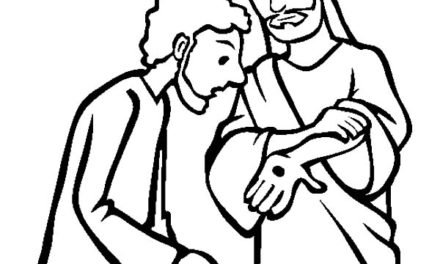


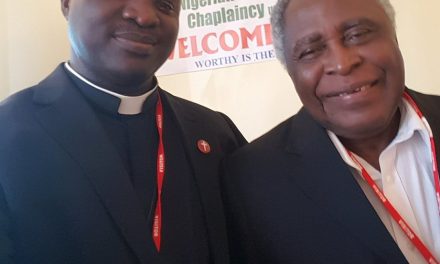

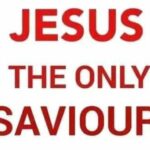


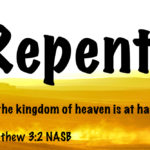
“Today’s generation are drinking from Dewey’s well”: What is “today’s generation” supposed to be? I can count four generations among my friends and relations.
Today’s generation may include your count of four generations, but the moral decay is related to group of individual, most of whom are same appropriate age, having similar ideas, problems, values, attitudes etc.